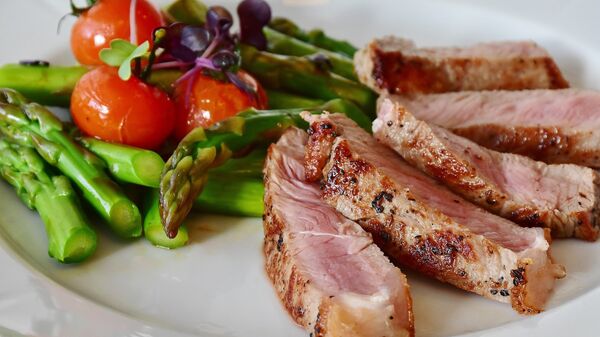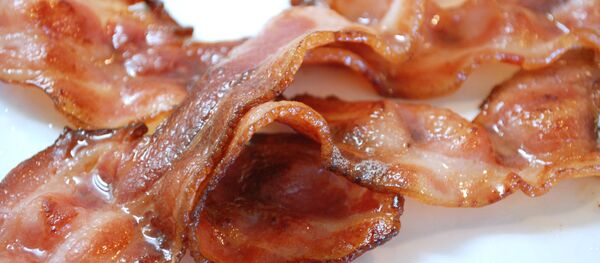According to the Uppsala-based Swedish Board of Agriculture (SLU), the consumption of meat (mostly chicken and lamb) reached a new high in 2016, which is indeed surprising given the public discussion on red meat, the environment and health-related issues in recent years. Vegetarianism in the Nordic countries has never been as popular as it is today.
"What we have seen is that the awareness-raising campaign did not work out well. More people are aware of the environmental problems arising out of meat production, yet the consumption is still rising," SLU project manager Elin Röös told Swedish Radio.
According to Röös, a more powerful instrument of persuasion is needed, such as possibly a red meat tax. Röös cited other countries' success regarding placing taxes on foods which are deemed unhealthy, such as sugar and saturated fats, which allegedly led to reduced consumption. A meat tax, though, has until now been an untested concept, and Sweden may pave the way for others to follow.
"It is difficult if not impossible to design a meat tax that penalizes 'bad' meat and promotes 'good' meat. For what is good and bad meat? Organic farming is dependent on animals, primarily herbivores. Additionally, all animals produce manure that is good for the soil and replace imported fertilizers," Peter Borring, Chairman of Federation of Swedish Farmers (LRF) in Östergötland County, wrote on his Facebook page.
Jan Forsell, the president of the Swedish Beef Producers, brushed taxes aside as a blunt tool.
Earlier, Conservative MP Sten Bergheden wrote in his opinion piece in the magazine Dagens Samhälle that the meat tax was incompatible with a healthy countryside and called on its supporters to "remove their green blinders" and the real problems and opportunities of the Swedish agriculture instead of wasting energy on trying to re-shape it "into an ideological utopia with a weak foothold in reality."
Previously, a national survey revealed Swedes' skepticism about the meat tax. In a 2015 poll by SOM, only 24 percent of Swedish respondents were in favor of a meat tax, whereas 46 percent thought it was a bad idea. This didn't stop Elin Röös, though.
"People don't generally favor taxes, so I think it was a pretty high figure," Elin Röös told Swedish Radio.
Never miss a story again — sign up to our Telegram channel and we'll keep you up to speed!





